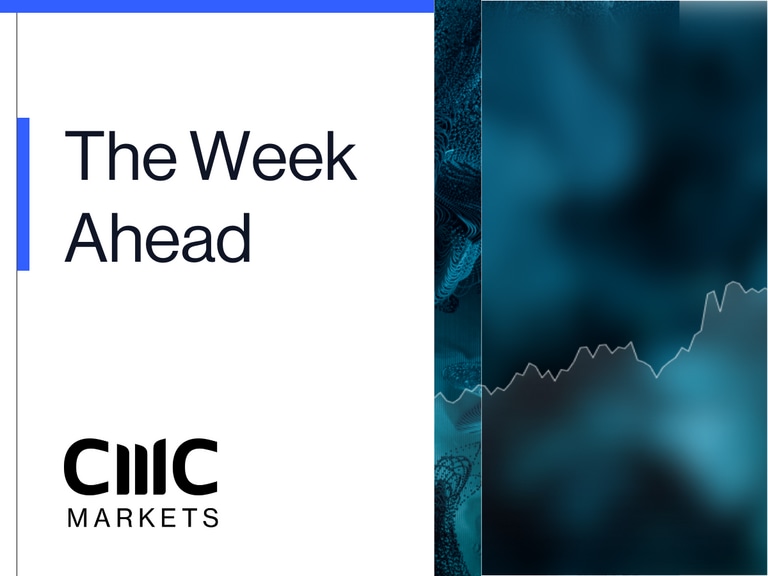
Watch our week ahead video preview, read our pick of the top stories to look out for this week (20-24 January), and view our key company earnings schedule.
In this week’s video, UK chief market analyst, Michael Hewson, discusses the reasons behind the new record highs for US markets, the latest UK data, the prospect of a Bank of England rate cut and the latest decisions from the ECB and Bank of Canada, plus the latest numbers from easyJet and Netflix.
EasyJet Q1 results
Tuesday: Since the lows of last summer, easyJet’s share price has risen more than 76%, boosted by improvements in passenger numbers as well as higher revenue and profit. Part of these gains have undoubtedly been down to the problems facing its peers – strikes at British Airways and Ryanair have helped its figures. The airline will have also reaped the benefits from the breakdown of Thomas Cook, having already paid £36m for the collapsed package-holiday firm’s slots at Gatwick and Bristol. Indeed, Ryanair upgraded its numbers earlier this month, having struggled for most of the year due to industrial unrest. EasyJet still plans to go down the package-holiday route, despite Thomas Cook’s downfall, having increased staff numbers in the package-holiday division from 30 to 40 in the wake of its demise. The company is looking to launch the business in either February or March.
Netflix Q4 results
Tuesday: The launch of Disney+ and Apple TV+ in the last quarter could have negatively impacted Netflix subscriber growth over the Thanksgiving and Christmas period. As the global number one streaming service, Netflix is acutely vulnerable to the much deeper pockets of two of the world’s biggest brands. As things stand, the company is already spending more on content in an attempt to maintain its market position. However, to make that sustainable, it also needs to add new subscribers at a much faster rate than its wealthier peers. In October, Netflix raised another $2bn in debt to fund new content, with the company set to spend $18bn over the next year. In its last quarter the company added 6.8m subscribers, falling slightly short of its 7m target, and said it expected to add 7.6m in Q4 – putting it above 160m global subscribers. Management will be hoping that the addition of new content, including the recent success of Martin Scorsese’s ‘The Irishman’, will have helped boost its numbers. Expectations are for profit of52 cents a share.
World economic forum
Tuesday: Having seen equity markets get off to a fairly positive start to the year, the time has come for investors to cast their eyes towards the icy slopes of Davos, Switzerland, where the so-called great and good get together at significant expense to discuss the challenges facing the global economy. Over the last 10 years, it’s questionable as to what, if anything, these annual gatherings have achieved – apart from a significant boost to the Swiss economy. Last year, the meeting was just as notable for those who didn’t attend. There will certainly be a lot of media coverage, with plenty of pledges from business leaders and politicians to come up with measures to help boost the global economy and trade, as well as the challenges of climate change. The reality is that for all the heat and light, to reference William Shakespeare, it will probably be much ado about nothing.
UK unemployment & average earnings
Tuesday: We’ve heard whispers in recent weeks that Bank of England officials appear to be leaning towards the prospect of another cut in interest rates, over concerns about the slowdown in the UK economy in the past three months. This slowing growth rate is certainly a cause for concern, although wage growth has continued to be resilient at over 3%, and unemployment is still close to 40-year lows. Consumers do appear to have cut back as evidenced by a slowdown in retail sales, but that is by no means a bad thing, given that consumer credit is quite high. Inflation is also subdued, just under the Bank’s 2% target at 1.7%. Given that its mandate is to target inflation, it’s not immediately clear what effect any further action from the central bank might have.
Bank of Japan rate decision
Tuesday: No changes are expected from the Bank of Japan, with governor, Haruhiko Kuroda, recently saying that the central bank remained ready to act further against a backdrop of rising geopolitical tension. At the end of last year, Governor Kuroda, as well as Japanese PM Shinzo Abe, urged Japanese business leaders to look at increasing wages to help boost the economy, and consumer spending power. The governor said that doing this would help the central bank meet its inflation target, something it has failed to do in the last 30 years.
Bank of Canada rate decision
Wednesday: At the end of last year, weak economic data had raised concerns that the Bank of Canada might look at cutting rates in the first quarter of this year. This now looks in doubt given the recent strength in jobs data, especially after December’s US non-farm payrolls followed on from a fairly solid November report. As long as the US economy continues to perform well, the Canadian economy is also likely benefit.
Burberry Q3 results
Wednesday: When Burberry reported in November, there was some concern that the unrest in Hong Kong might adversely affect its revenue and profit. The region was certainly a drag on the company, with a £14m impairment charge in the numbers. However, management kept full-year guidance unchanged, as well as announcing a 14% increase in operating profit to £203m for the six months to the end of September. Revenue also rose to £1.3bn, Burberry appears optimistic that the recent partnership with Tencent will help deliver tangible returns in 2020.
Intel Q4 results
Thursday: In its last set of numbers, chipmaker Intel saw profit and revenue beat expectations This sent shares sharply higher and further away from the summer lows, amid concerns that the US-China trade spat, as well as slowing global demand, was impacting its bottom line. Increased demand for laptops and desktop PCs saw revenue hit $9.71bn in Q3. Across all of its divisions, demand for chipsets helped beat revenue targets across the board. The increasing growth of cloud services from Amazon and Microsoft also helped that division return to growth. Intel raised its full-year guidance at the end of last year to $4.60 a share on $71bn of revenue, and is already up over 30% from last summer’s lows.
European Central Bank rate decision
Thursday: In a big week for central banks, the European Central Bank will be meeting for the first time in 2020 against a backdrop of improvement in recent manufacturing and services purchasing manager index (PMI) numbers at the end of the last quarter. Officials are expected to paint a cautious outlook for the European economy, while being cognisant of the fact that the recovery is still quite weak and at its very early stages. The outlook is expected to outline that the risks remain tilted to the downside, while President Lagarde is also likely to sketch out in more detail the scope of the strategic review that she is looking to undertake into the central bank’s overall remit.
Eurozone manufacturing & services flash PMIs (Jan)
Friday: Recent improvements in PMI data towards the end of last year has raised hopes that Europe could be about to embark on an economic upswing. Current data has shown that, while manufacturing is still in recession, there is a tepid recovery under way. Services tell us a different story, as it’s still holding up against a weak manufacturing backdrop. Policymakers will be hoping that the services data continues to hold up, as consumers continue to take up the slack at a time when the global economy is struggling to pick up.
Index dividend schedule
Dividend payments from an index's constituent shares can affect your trading account. See this week's index dividend schedule
Selected UK & US company announcements
| Monday 20 January | Results |
| Enterprise Financial Services (US) | Q4 |
| Tuesday 21 January | Results |
| Capital One Financial (US) | Q4 |
| EasyJet (UK) | Q1 |
| First Midwest (US) | Q4 |
| IG (UK) | Half-year |
| Netflix (US) | Q4 |
| Wednesday 22 January | Results |
| Baker Hughes (US) | Q4 |
| Burberry (UK) | Q3 |
| Citrix Systems (US) | Q4 |
| Fifth Third (US) | Q4 |
| Johnson & Johnson (US) | Q4 |
| Thursday 23 January | Results |
| Blue Prism (UK) | Full-year |
| Comcast (US) | Q4 |
| Intel (US) | Q4 |
| JetBlue Airways (US) | Q4 |
| NCC (UK) | Half-year |
| Procter & Gamble (US) | Q2 |
| Skyworks Solutions (US) | Q1 |
| Southwest Airlines (US) | Q4 |
| Union Pacific (US) | Q4 |
| Friday 24 January | Results |
| American Express (US) | Q4 |
| NextEra Energy Partners (US) | Q4 |
Company announcements are subject to change. All the events listed above were correct at the time of writing.
Disclaimer: CMC Markets is an execution-only service provider. The material (whether or not it states any opinions) is for general information purposes only, and does not take into account your personal circumstances or objectives. Nothing in this material is (or should be considered to be) financial, investment or other advice on which reliance should be placed. No opinion given in the material constitutes a recommendation by CMC Markets or the author that any particular investment, security, transaction or investment strategy is suitable for any specific person. The material has not been prepared in accordance with legal requirements designed to promote the independence of investment research. Although we are not specifically prevented from dealing before providing this material, we do not seek to take advantage of the material prior to its dissemination.






















